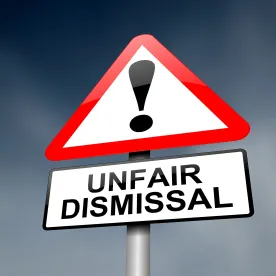The Social Chamber of the Court of Cassation today issued two long-awaited decisions on the compensation scale currently applicable in the event of dismissal without real and serious cause.
The so-called “Macron Scale” is the result of an ordinance of 22 September 2017 (No. 2017-1387) and appears in Article L. 1235-3 of the Labour Code. It holds that, in the event of dismissal deemed to be without real and serious cause, a judge may propose the reinstatement of the employee in the company. If either party refuses this reinstatement, the judge then awards the employee an indemnity payable by the employer, the amount of which is between minimum and maximum amounts.
These amounts are expressed in months of gross salary and depend on the number of employees in the company and the seniority (in full years) of the employee. The scale is progressive and the maximum amount is capped at 20 months for employees with at least 29 years of service.
According to the French government, the introduction of the scale aims to increase predictability and secure the employment relationship or the effects of its termination for employers and their employees. Other European states, notably Belgium, Denmark, Finland, Germany, Switzerland, and Spain, have set up similar scales.
France’s scale (and mainly the compensation ceiling) gave rise to lively debates that focused on the question of its enforceability, on the grounds that it would disregard international rules of treaty law, mainly:
-
Article 10 of ILO Convention No. 158, ratified by the France in 1989, which provides that national courts must “be empowered to order the payment of adequate compensation or any other form of compensation considered appropriate”; and
-
Article 24 of the European Social Charter, which requires national law to provide for “the right of workers dismissed without just cause to adequate compensation or other appropriate redress”.
The argument can be summarized thusly: given the compensation ceilings to which the judge is bound, the scale would not allow adequate compensation to the employee dismissed without valid reason.
The debate gave rise to numerous actions in France. The Court of Cassation considered, in an opinion of 17 July 2019, that the scale was compatible with Article 10 of the ILO Convention (it considered on this occasion that Article 24 of the Social Charter had no direct effect).
Despite this opinion (which does not has the value of a decision) , a number of French industrial tribunals have decided to set aside the scale. Some jurisdictions have decided that the scale is not compatible with international law (CPH of Angoulême of 9 July 2020 RG F 19/00184). Others, such as the Reims Court of Appeal (25 September 2019, No. 19/00003), considered that if the scale was not unconventional, the review of conventionality did not exempt the judge from assessing whether it did not disproportionately infringe the employee’s rights by imposing burdens disproportionate to the result sought.
The decisions of the Social Chamber were then expected. At the Chamber hearing held on 31 March, the First Advocate General had suggested that the Court should engage, like the Reims Court of Appeal, in an “in concreto review”.
This is not the route followed by the French Supreme Court today. In summary, the Court of Cassation:
-
Recognizes the conventionality of the scale with regard to Article 10 of ILO Convention No. 158 (judgment No. 654: “The provisions of Articles L. 1235-3, L. 1235-3-1 and L. 1235-4 of the Labour Code are thus such as to allow the payment of adequate compensation or compensation considered appropriate within the meaning of Article 10 of ILO Convention No. 158. It follows that the provisions of Article L. 1235-3 of the Labour Code are compatible with the provisions of Article 10 of the above-mentioned Convention”)
-
Refuses to engage in a review of conventionality in concreto, contrary to the suggestions of the First Advocate General and the position adopted by the First Civil Chamber in 2013 (judgment n°654: “In ruling in this way, when it was only up to her to assess the concrete situation of the employee to determine the amount of compensation due between the minimum and maximum amounts determined by Article L. 1235-3 of the Labour Code, the Court of Appeal violated the above-mentioned texts”)
-
Refuses to recognise the direct effect of the European Social Charter (judgment no. 655).
The conventionality of the Macron scale is thus again affirmed without reservation by the Court of Cassation.
This is very good news for French employers.
The decisions provide indeed legal certainty: judges cannot in principle deviate from the scale and must assess damages awards within the limits of the scale.
Will this however make it possible to put an end to the contentious debates on the unconventionality of the scale? Nothing is less certain as industrial courts mays well decide to disregard these decisions and take the risk to have their decisions cancelled by higher Courts.
They should however be more and more reluctant to do so.



 />i
/>i
